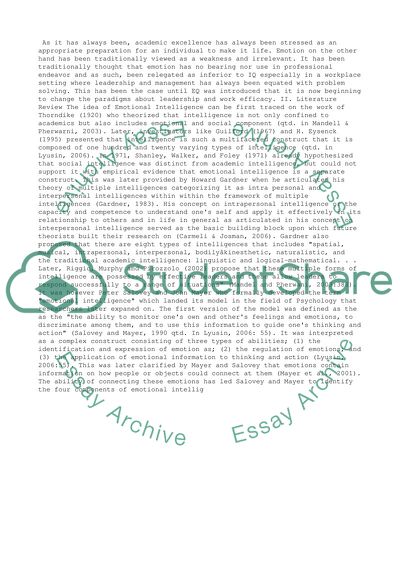Cite this document
(“Emotional intelligence- emotional intelligence vs. IQ in effective Research Paper”, n.d.)
Retrieved from https://studentshare.org/management/1431468-emotional-intelligence-emotional-intelligence-vs
Retrieved from https://studentshare.org/management/1431468-emotional-intelligence-emotional-intelligence-vs
(Emotional Intelligence- Emotional Intelligence Vs. IQ in Effective Research Paper)
https://studentshare.org/management/1431468-emotional-intelligence-emotional-intelligence-vs.
https://studentshare.org/management/1431468-emotional-intelligence-emotional-intelligence-vs.
“Emotional Intelligence- Emotional Intelligence Vs. IQ in Effective Research Paper”, n.d. https://studentshare.org/management/1431468-emotional-intelligence-emotional-intelligence-vs.


